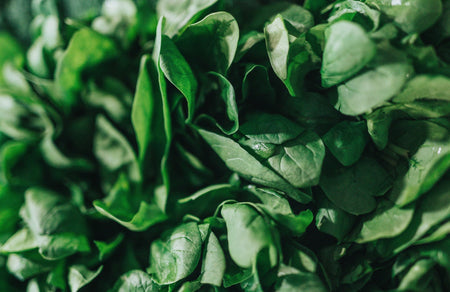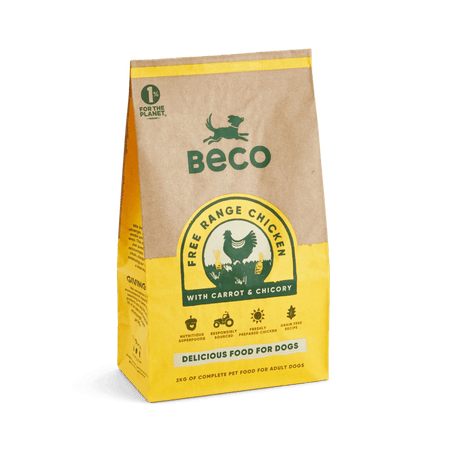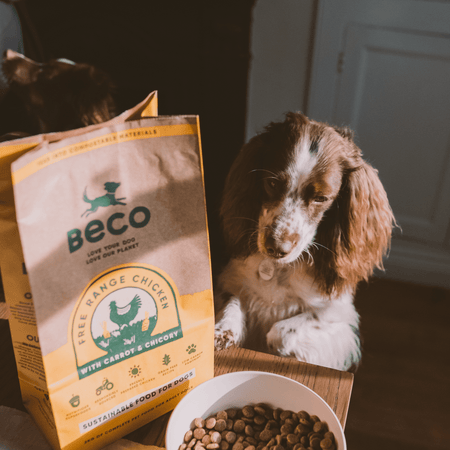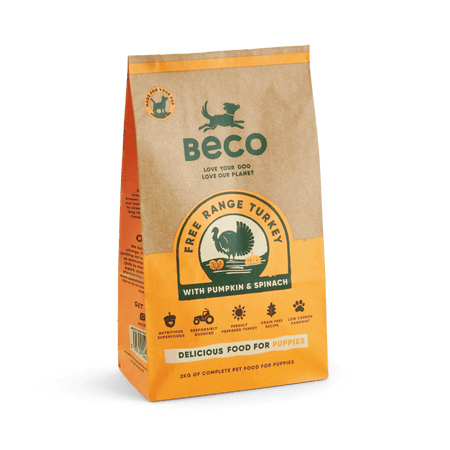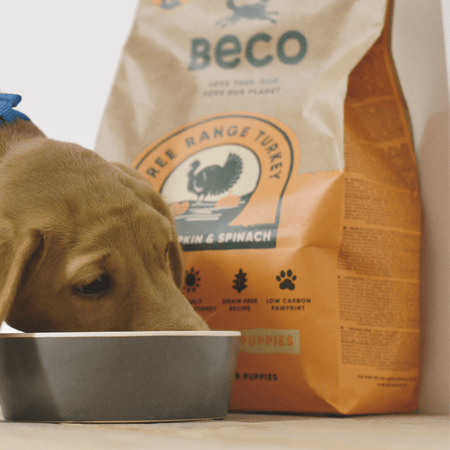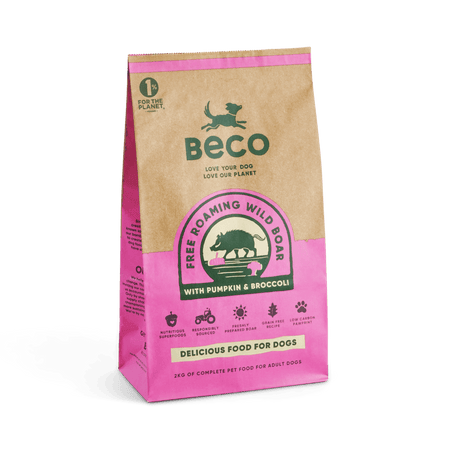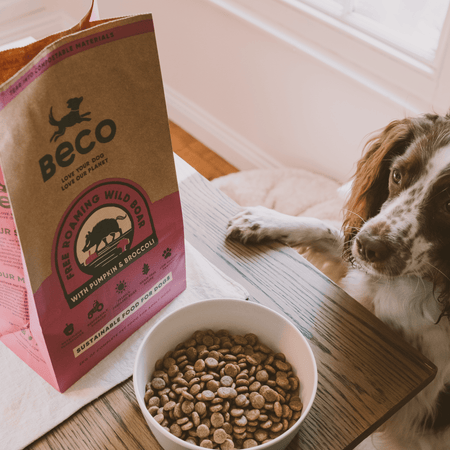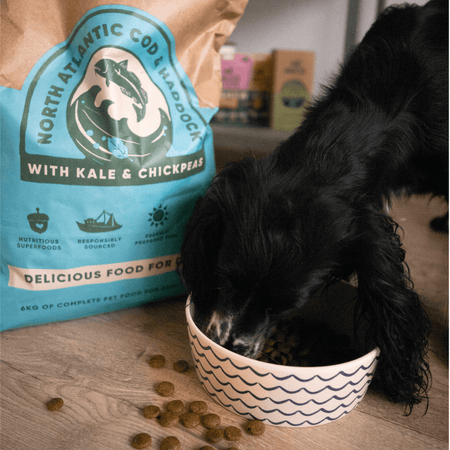When we think of superfoods, we think of spinach. It’s synonymous with healthy living. Pioneered by Popeye, it remains a key ingredient in any modern-day detox smoothie. The leafy green packs a punch.
Of course, that’s all great for us human folk – but what about our dogs? Over the years, the issue of spinach in our pups’ diets has been a hot topic. Owners have tried to understand whether the superfood that works so well for us, does the same for our dogs. So we thought we’d set the record straight.
The simple answer, yes. Spinach is full of healthy nutrients that have plenty of benefits for your pup. But as with all food queries, there is a rule of thumb and that’s everything in moderation. Too much of anything can do more harm than good – especially when it comes to a dog’s diet.
It’s important to remember that our dog’s are omnivores, and their diet should reflect this. While vegetables like spinach are a great supplement, they should enhance meat-based meals. Too much and you risk upsetting your dog's stomach.
Now, when we say ‘too much’, we’re talking excessive amounts on a daily basis. As with any diet, it’s all about finding the right balance. For spinach, that means identifying dog food that contains the correct amount.
For example, if you have a puppy our free range turkey with pumpkin and spinach is a good place to start.
Benefits of spinach for dogs
As we’ve already mentioned, spinach is full of goodness. Alongside Vitamin C, a powerful antioxidant that promotes skin health and immunity, this small green leaf is brimming with other great vitamins and minerals. Let’s take a look.
Vitamin A: like carrots, spinach is full of Vitamin A which is great for improving eyesight, especially in low-light conditions
Vitamin D: improves your dog’s ability to absorb calcium and build stronger bones
Vitamin B: unlike Vitamin C, which is naturally produced, Vitamin B must be introduced through your dog’s diet. It’s great for building strong bones, teeth and connective tissues
Vitamin K: great at regulating blood function and helps prevent clots
Calcium: enhances bone growth and helps muscles lengthen and contract
Iron: supports the blood’s ability to carry more oxygen in red blood cells
Fibre: helps maintains health of gastrointestinal system
-
Magnesium: reduces the likelihood of constipation and urinary disorders. It also helps prevent blood flow deficiencies
Who’d have thought such a small vegetable could offer so much nutritional value? It is, though, important to remember that certain foods might not be suitable for certain dogs. We’ll be taking a closer look at the things you should consider in the next section.
Can dogs eat raw spinach?
Now it may seem a good idea to add a handful of fresh spinach leaves on top of your dog's food. But unfortunately, this isn’t a good idea. Dogs find it hard to digest raw spinach leaves, as the digestive tract struggles to break down the leaves.
If you are planning to introduce spinach to your dog’s diet, make sure it isn’t overpowering within the recipe. If you’re unable to find a recipe, we advise steaming it and then cutting it up into small consumable bitesize pieces.

Can puppies have spinach?
This is where things can get complicated. As we’re sure you already know, a puppy’s diet requires careful attention and extra caution. There are concerns that the oxalates spinach can cause kidney problems. But fear not – these concerns are only linked to dogs with existing kidney problems.
But puppy's kidneys are still developing at this stage so avoid excessive amounts of spinach, as always it’s about everything in moderation. Our Puppy Food recipe is formulated with measured quantities of spinach to give your pup the nutrition they need, whilst ensuring their development remains on track You can find out more in our blog: How much to feed a puppy.
Does spinach give dogs diarrhoea?
Again, the rule of thumb applies here too. Because spinach is rich in fibre, there's a strong possibility your dog may experience constipation if eating too much. But there’s no need to panic, you’d have to feed your dog a considerable amount in one sitting for this to pose any real issue.
As an owner, all you have to do is watch and moderate how much spinach you’re feeding your dog. This is the same with all types of fruit and vegetables due to the high amounts of fibre. So treat them all the same: everything in moderation.
Things to consider
Before we wrap up, it’s worth outlining a few extra dos and don'ts. As we know by now, spinach is a great addition to your dog’s mealtime. But there are some things as an owner you need to do to ensure they get the most out of the super vegetable.
Puree or Powder
As already mentioned, our dogs struggle to digest raw spinach leaves. To avoid this, you should add your spinach as a puree or look for recipes that have included it in powder form. These two methods also make it much easier to regulate the amount of spinach you put into your dog’s food.
Slowly introduce it
Like all changes to a dog’s diet, you should introduce a new ingredient or flavour gradually. That’s because any abrupt changes might lead to a tummy upset or diarrhea. If you do decide to introduce spinach, do so with small amounts and build up your dog’s intake each week.
Avoid additives
While it may seem like a good idea to season your dog's spinach, or add oil to make the puree smoother, you run the risk of unsettling your dog’s stomach. To be safe, stick to spinach by itself.
Be ready for rejection
As much as you might want to treat your dog to spinach, you should prepare for a scenario where your dog may not like it. Don’t be offended and certainly don’t try to keep on adding it if your dog has made it clear it’s not for them. Our dogs can be picky from time to time.
The final word
If we look all the way back to the original question, the answer remains a resounding yes. Spinach is a brilliant food for both us and our pups. It’s full of nutritional value and can help our dogs develop in more ways than one.
Of course, there will always be concerns around particular types of food and their effect on certain types of dogs. The best thing to remember is that your dog should eat spinach, like all other ingredients, in moderation.
Too much of anything can be bad for anyone, including us. So when introducing spinach to your dog’s diet, do so with care and pay close attention to things like their stool, mood and appetite. If there’s no change, there’s no need to worry.
